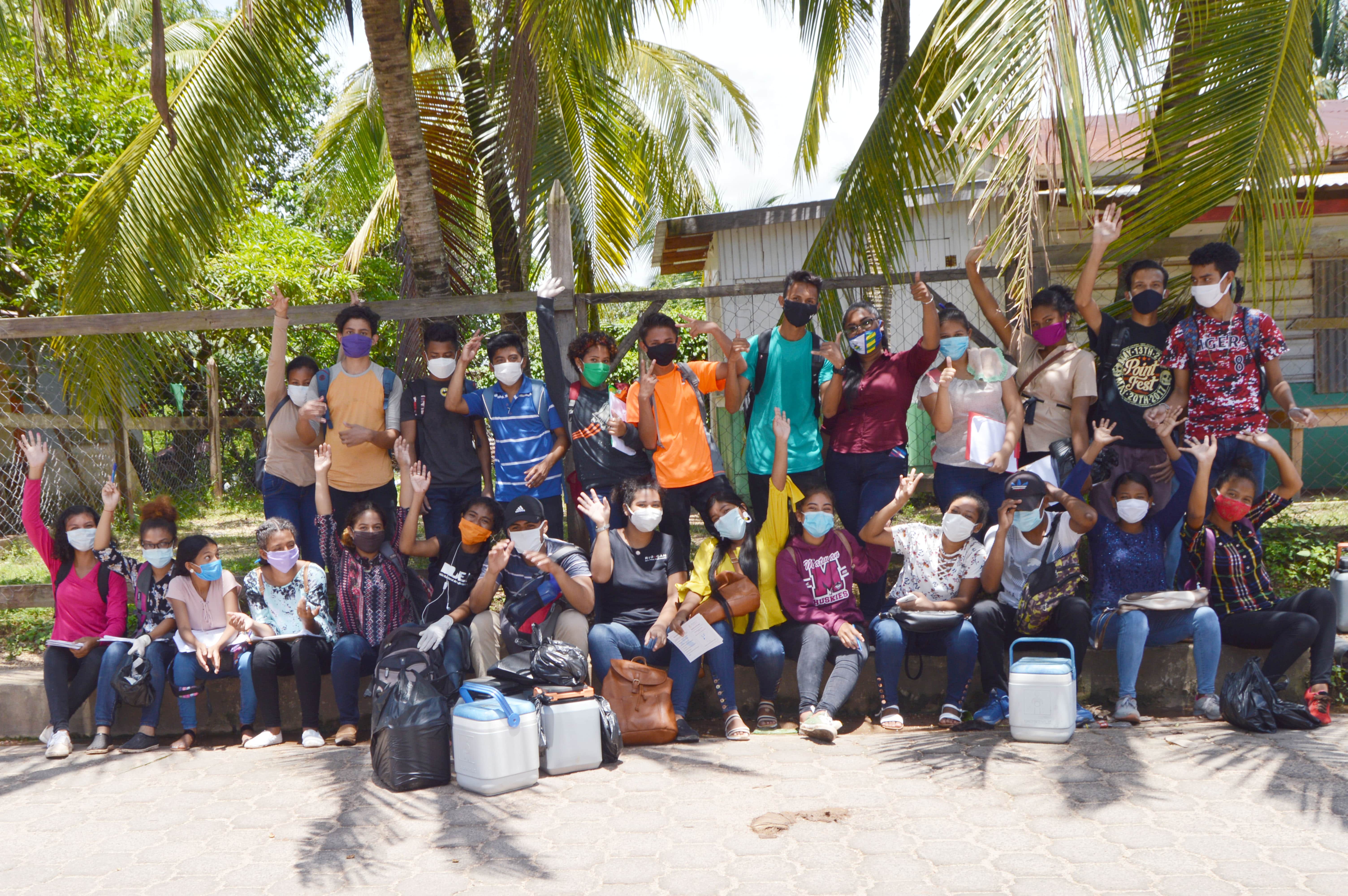
Students of Intercultural Medicine, ready to start home visits.
Home visits in Bilwi city, Puerto Cabezas municipality
Students from the first year of URACCAN's Intercultural Medicine career volunteered on the day of canine and feline vaccination promoted by the Ministry of Health, visiting the Spanish Town and El Cocal neighborhood, in the city of Bilwi, Puerto Cabezas.
These volunteers benefit the educational training that from URACCAN is promoted, promoting humanism, relevant and quality education to indigenous peoples, Afro-descendants and mestizos of the Caribbean coast, "it is a pleasant and very practical experience for them, because that will serve them in their daily work," said Dr Brigeth Sam, teacher of URACCAN Bilwi.
In addition, Sam explained that, through these practical classes, the student may have new knowledge to reinforce his medical preparation, "acquire skills for the application of intramuscular injections and also subcutaneously, they also perform the work of land house to house, thus making known to the population that the university has high quality students," she said.
For his part, the student Rodrigo Jarquín Fernández, said that the participation of the student is to prevent the population from crowding in the health center in order to make use of this free vaccine for their pets, in addition this is to prevent the spread of rabies in both cats and dogs in the city, the student said.
Articulation of jobs that strengthen peoples
This vaccination day began in Bilwi on 15 August and will end this Sunday 31st of the current month, where a target of 7 thousand vaccinated dogs and cats is reached at the end, as reported by representatives of the Ministry of Health. The students of URACCAN Bilwi venue were invited to support only the days, Wednesdays, Thursdays and Fridays of this week.
Johnson McDonald, health inspector at the Minsa highlighted the valuable coordination that took place with the university, because that way students contribute with the vaccination of canines, "we are putting Rabicin, which is to decrease rabies and control it," he stressed.
Finally, Marvin Ulysses Leman Meléndez, technician in the area of Epidemiology of the Minsa, appreciated the help offered by the university through the student community. "Thank URACCAN for not have the resources to support us because only technicians could not vaccinate, thank students for doing these favors, because technicians are very few," he concluded.
- Log in to post comments
- 73 views
